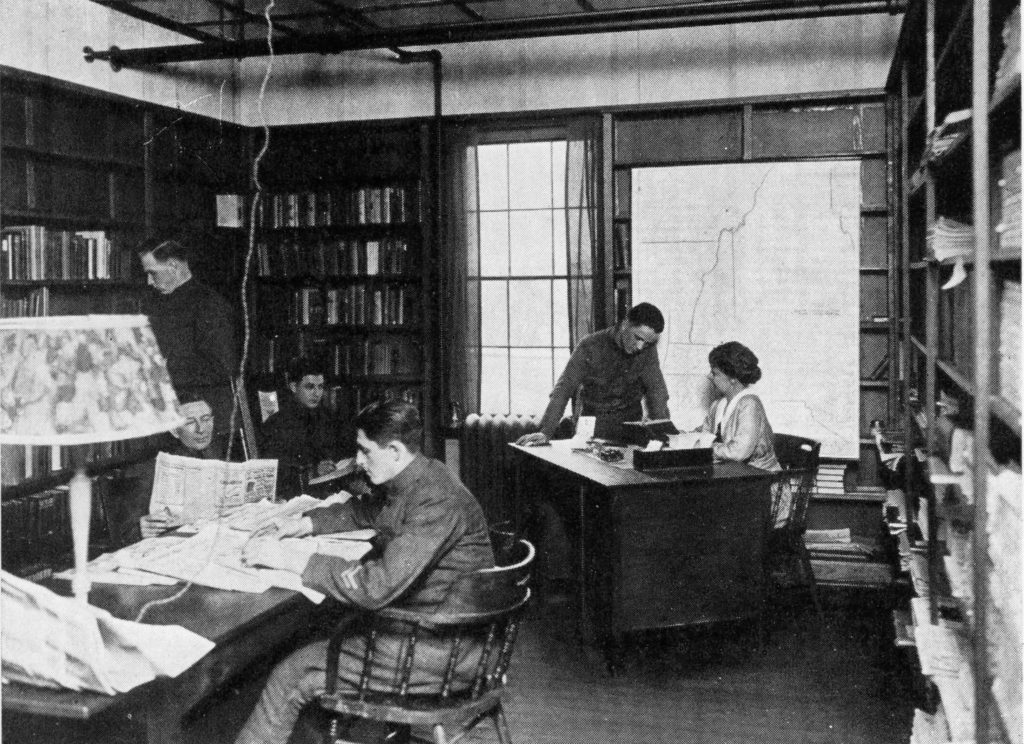
Louise Sweet was the hospital librarian stationed at United States Army General Hospital No. 16 in New Haven, Connecticut. She lived in the Red Cross hut on-site and from there distributed books to patients’ bedsides. In the photo on the right, you can see her at work in the hospital library. Her work posed multiple challenges. During and after the war, the hospital exclusively treated soldiers suffering from tuberculosis (TB). These patients would spend long hours resting, and in good weather, reclined outside to take advantage of the perceived benefits of fresh air.
To “prescribe” books of therapeutic value to these patients, librarians like Louise Sweet had to consider several potential dangers. Some librarians feared that certain genres, such as detective stories and westerns, could raise the temperature of TB patients or quicken their pulse rates. There was also considerable debate as to whether TB patients should be allowed to read fiction or nonfiction that referenced their disease in any way.
Sweet offered strict rules to guide prescription of books to these patients. These rules distinguished between “bad” and “good” medicine:
- Objectivity of plot – stories preferably of action that carry the reader along zestfully and give him no time for retrospective bypaths.
- Emphasis on characters that win love and spur emulation.
- Avoidance in hospital literature of pathological characters and illnesses.
- Religious or ethical propaganda or experimentations in moral fields are doubtful pabulum for the sick. It is the rare individual who is not emotionally biased in his convictions and when ill he is peculiarly vulnerable to bombardments of this nature.
Here is a sample of books she dispensed: :
Sweet admitted that the “science” of prescribing books was by no means exact:
“Unfortunately there is no gauge to measure accurately the efficacy of a book. Its value is evanescent, as are all spiritual values, fluctuating with time, place and mood of the man, and in a tuberculosis hospital the latter is closely involved with the weather. It is a live book that can break through the apathy that enshrouds the bed patients on a rainy day. But that books do take the men out of themselves, there is daily testimony.”
One Patient’s Response:
“Books,” exclaimed one man to another, apropos of the bookcart’s arrival, “They’re all that hold reason together.”
Read a favorite poem of patients at United States Army General Hospital No. 16 in New Haven, and add your own comments on how it would be therapeutic to tuberculosis patients.